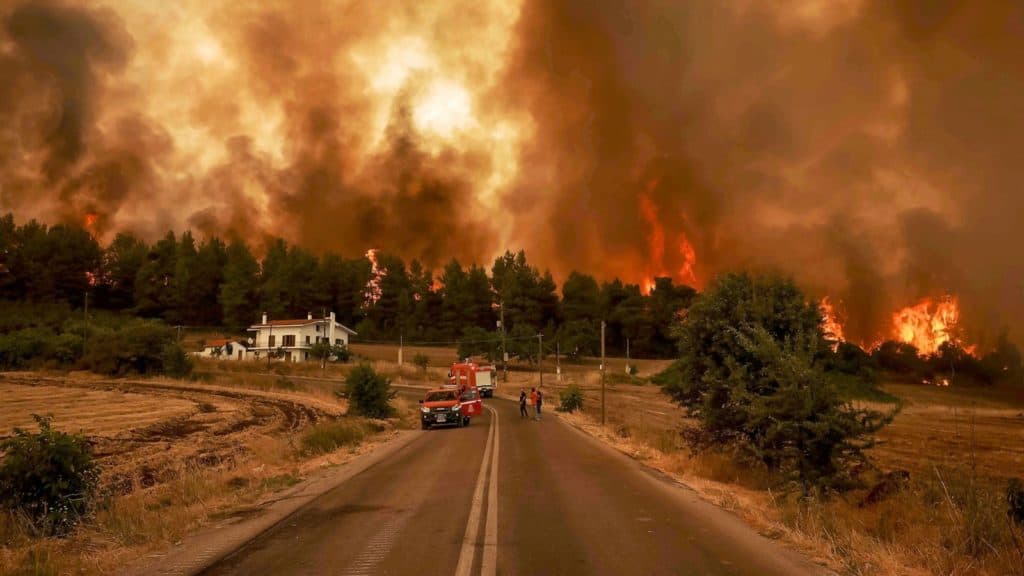New Forest, Autumn 2021
Around 230 councils in the United Kingdom have declared a climate emergency, many of them setting 2030 as their target date to achieve net-zero carbon.
Across the world, and as of June this year, 1,900 local governments in 34 countries have made climate emergency declarations. The term ‘climate emergency’ is used to try and impress a sense of urgency in dealing with a massive problem. A United Nations survey across 50 countries found that 64% of 1.2 million people believe climate change is a global emergency.
The 2021 report from the Intergovernmental Panel on Climate Change (IPCC) was unequivocal in saying ‘It is an established fact that human influence has warmed the climate system and that rapid and widespread climate changes have occurred.’
People and communities everywhere are becoming more and more aware of the severity of the problem, and eager to support moves to make things better. But too often politicians are trailing behind public opinion.

So what is happening in the New Forest?
Hampshire County Council declared a climate emergency in June 2019.
New Forest District Council (NFDC) rejected the idea later the same year, believing they could achieve more through an environmental action plan.
In the District Council’s 2020-2024 corporate plan that followed, one Key Activity was to be setting out ‘actions to protect the local environment and reduce our impact on climate change.’ However, a vague achievement indicator – a ‘Reduced carbon footprint for the New Forest area and District Council’ – suggested it was more of an aspiration than a target.
There is no public evidence of a plan, and the corporate plan is currently unavailable and under review.
As the climate situation gets worse a motion has recently been put forward in the District Council by the Liberal Democrats. It calls on the Cabinet to declare a climate emergency, pledge to make the New Forest district carbon neutral by 2030 and put in place various plans and actions to support this undertaking.
The New Forest District Council Cabinet will discuss it at their next meeting.
Declaring a climate emergency is not just a gesture. It is an acknowledgement of the seriousness of the situation and explains the bringing forward, for that is what should follow, of an agenda of radical actions with community and corporate involvement.
The term ‘climate emergency’ is not what has been dismissed by the Chair of the NFDC as very extreme language. It is the term used by the United Nations Secretary-General in December last year when he asked the world’s governments to declare a climate emergency in their countries until carbon neutrality is reached – in recognition of both the urgency and the stakes.
People come together in times of an emergency, and a local authority is in a unique position to encourage community groups to arise and set targets, devise actions and share good practice. Other communities have had working groups suggesting ideas that are then looked at in terms of cost, practicalities, effectiveness, timescales and deliverability.
The extreme weather events we see – devastating floods, vast wildfires and record-breaking temperatures – are signs that the eco-systems of the world are under stress.
These events are not put on show in the media to persuade an allegedly sceptical public to accept the cost of spending money deemed by some as unnecessary. They are appalling human and environmental disasters that have been influenced by human activity, and which are being shown to all of us to understand what is happening.

The cost of achieving net-zero carbon has been estimated as 1% – 2% of GDP, but even since those figures were published, UK and global cost estimates have dropped sharply as key technologies keep getting cheaper
Whatever the amount, the cost of not spending that money would be very much higher. Reactive spending would simply go on ever-increasing damage repair, containment, mitigation and endless crisis management, and contribute nothing to a solution.

The charge has been made that climate science has been politicised. But politics at all levels is about managing the issues that affect communities. If climate change and its effects on people and their communities are not a matter of politics, then what is?
In the context of COP26 and the ever-deteriorating climate situation, what better time for our District Council to review its position, respond to changing circumstances and growing public concern, and declare a climate emergency?
